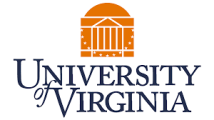The University of Virginia: A Legacy of Excellence
Founded by Thomas Jefferson in 1819, the University of Virginia (UVA) holds a distinguished place in the history of American higher education. Located in Charlottesville, Virginia, UVA has built a reputation for its strong academic tradition, commitment to innovation, and broad impact on education and society. This overview explores the university's origins, growth, and contributions over the years.
Founding and Jefferson’s Vision
The establishment of the University of Virginia by Thomas Jefferson, the third President of the United States and one of the Founding Fathers, marked a significant milestone in American education. Jefferson’s vision was to create a university that would serve as a beacon of knowledge, freedom, and intellectual exploration. Officially chartered in 1819, UVA began to take shape with the construction of its original campus, featuring Jefferson’s iconic design, including the Rotunda and surrounding pavilions. These architectural elements remain a testament to his vision and continue to symbolize UVA’s mission.
Jefferson’s educational philosophy was revolutionary for its time. He advocated for a broad-based, secular curriculum that would prepare students for leadership and active citizenship, free from religious or political influence. The curriculum encompassed sciences, humanities, and social sciences, aligning with Jefferson’s belief in the importance of a well-rounded education. This foundation remains central to the university’s mission today, reflecting the enduring relevance of Jefferson’s ideals.
Growth and Institutional Expansion
As the 19th and early 20th centuries progressed, UVA experienced significant growth in its academic programs and student body. The university’s offerings expanded with the creation of new schools, departments, and facilities that supported the increasing demands of higher education. The late 19th century marked the establishment of UVA’s School of Engineering and Applied Science, a move that positioned the university as a key institution in the development of technology and engineering education. Alongside this, the School of Medicine and the School of Law, both founded in the 19th century, cemented UVA’s reputation as a multidisciplinary institution, offering comprehensive education across diverse fields of study.
During this period, UVA saw continuous infrastructural expansion, ensuring that the university could meet the needs of its growing student population. As the university grew, so did its prestige, becoming a leading institution in law, medicine, and engineering.
Academic Excellence and Research Initiatives
The University of Virginia is synonymous with academic excellence and cutting-edge research. Its faculty members are not only educators but also leaders in their respective fields. With a faculty composed of distinguished scholars and practitioners, UVA has made significant contributions to a wide range of disciplines, including the humanities, social sciences, natural sciences, and various professional fields.
UVA’s research initiatives span a diverse array of topics, including health, medicine, engineering, environmental science, and public policy. The university’s robust research programs are supported by world-class facilities and partnerships with industry, government, and other academic institutions. UVA’s emphasis on fostering a research-intensive environment enhances the educational experience for students while pushing forward advancements in many areas of knowledge.
Campus Life and Student Engagement
The University of Virginia is not just a center for academic achievement but also a place where students experience a vibrant and engaging campus life. Thomas Jefferson’s original campus design, now a UNESCO World Heritage Site, offers a stunning architectural backdrop for the university’s bustling student community. The Rotunda remains the heart of the campus, symbolizing UVA’s ongoing commitment to intellectual inquiry and public service.
Beyond academics, UVA students are deeply engaged in extracurricular activities, with numerous student organizations, cultural events, and leadership opportunities. These activities provide students with avenues to grow personally and professionally while contributing to the university’s dynamic and inclusive community. UVA’s commitment to fostering a supportive environment ensures that students from diverse backgrounds can flourish.
Recent Developments and Global Innovations
In recent years, the University of Virginia has continued to embrace the evolving landscape of higher education. The university has integrated technological advancements and innovative teaching methods to enhance the learning experience for its students. This includes the use of digital platforms for research, online education, and interactive learning technologies that make education more accessible and engaging.
UVA has also expanded its global footprint through international partnerships and collaborative research initiatives. These efforts strengthen UVA’s presence on the world stage and open doors for cross-cultural exchanges, allowing students and faculty to engage with global issues more meaningfully.
Sustainability and environmental stewardship are key components of UVA’s modern mission. The university has made significant strides in promoting green practices on campus, including the implementation of energy-efficient technologies and sustainable building practices. These initiatives reflect UVA’s broader commitment to environmental responsibility and its role as a leader in sustainability efforts within higher education.
Conclusion
The University of Virginia stands as a testament to Thomas Jefferson’s vision of a leading institution dedicated to intellectual exploration, public service, and the advancement of knowledge. From its founding in 1819 to its current status as a globally recognized university, UVA’s commitment to academic excellence, research, and community engagement remains steadfast. With its rich history, exceptional faculty, and vibrant campus life, UVA continues to provide students with the tools they need to make meaningful contributions to their fields of study and beyond.
As the university moves forward, it remains true to Jefferson’s ideals, adapting to the needs of the 21st century while upholding its core mission of education, research, and service. For students seeking an exceptional academic experience rooted in tradition yet forward-looking in its approach, the University of Virginia remains a top choice.

